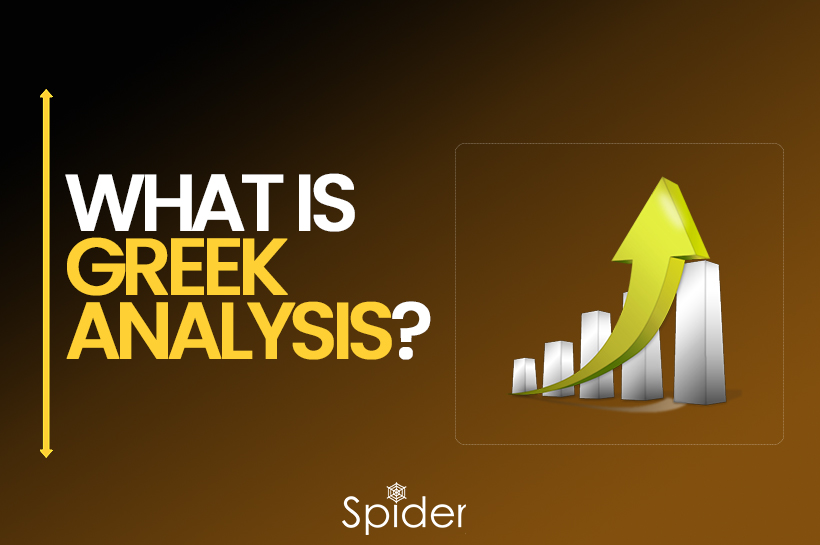This information can be useful to investors who are looking to make informed decisions that will help them trade in the market.
What is Greek Analysis?

Greek analysis is a popular tool used in options trading to evaluate the risk and potential profitability of an options position.
This method of analysis is based on the use of Greek letters, such as delta, gamma, theta, vega, and rho, which represent different variables that can affect the price of an option during Options Trading.
How Greek Analysis is beneficial for Options Trading?
Greek analysis is an essential tool for options traders as it provides valuable insights into the sensitivity of options to changes in underlying factors,
1. Allowing traders to better manage risk,
2. Implement trading strategies,
3. Forecast future price changes, and
4. Remain flexible in changing market conditions.
Different Types of Greek Analysis used in Options Trading
1. Delta
Delta, the first Greek letter, is used to measure the rate of change of an option’s price in relation to the underlying asset.
In other words, it shows how much an option’s price will move in response to a change in the underlying asset’s price.
For example, if an option has a delta of 0.5, that means that for every $1 change in the underlying asset’s price, the option’s price will change by $0.50.
2. Gamma
Gamma, the second Greek letter, represents the rate of change of an option’s delta.
It measures how much an option’s delta will change for every $1 change in the underlying asset’s price. As a result, gamma can help traders assess the potential risks and rewards of a particular trade and adjust their strategies accordingly.
3. Theta
Theta, the third Greek letter, is used to calculate the effect of time decay on the option’s price.
This means that it measures how much an option’s price will decrease as it gets closer to its expiration date.
It is essential to consider theta when trading options because it shows how much value an option will lose over time, even if the underlying asset’s price remains unchanged.
4. Vega
Vega, the fourth Greek letter, measures the sensitivity of the option’s price to changes in implied volatility.
Implied volatility is the market’s expectation of how much an asset’s price will change in the future.
Vega shows how much an option’s price will increase or decrease as implied volatility changes.
This information is crucial because changes in implied volatility can have a significant impact on an option’s value.
5. Rho
The fifth and final Greek letter, rho, represents the impact of changes in interest rates on an option’s price.
Rho is an essential factor to consider when trading options because changes in interest rates can affect the price of the underlying asset and, in turn, the value of the option.
Key Points To Take Away
- Analyzing the Greek values is crucial in options trading to understand risk and potential returns of different options positions.
- Delta, gamma, theta, and vega are the key Greek values that measure an option’s price sensitivity to changes in various market factors.
- Traders can make more informed decisions about which options to buy or sell by using these Greek values.
- Hedging options positions can help traders manage risk by minimizing potential losses.
- Understanding the Greek values can give traders a competitive edge and help them maximize profits in the dynamic world of options trading.
If you would like to learn more about Delta and a secret trading strategy with backtesting that can give you 5X returns. Watch our 1-hour programme and enjoy hasslefree trading experience and profits.
Disclaimer: The information provided in this Blog is for educational purposes only and should not be construed as financial advice. Trading in the stock market involves a significant level of risk and can result in both profits and losses. Spider Software & Team does not guarantee any specific outcome or profit from the use of the information provided in this Blog. It is the sole responsibility of the viewer to evaluate their own financial situation and to make their own decisions regarding any investments or trading strategies based on their individual financial goals, risk tolerance, and investment objectives. Spider Software & Team shall not be liable for any loss or damage, including without limitation any indirect, special, incidental or consequential loss or damage, arising from or in connection with the use of this blog or any information contained herein.





